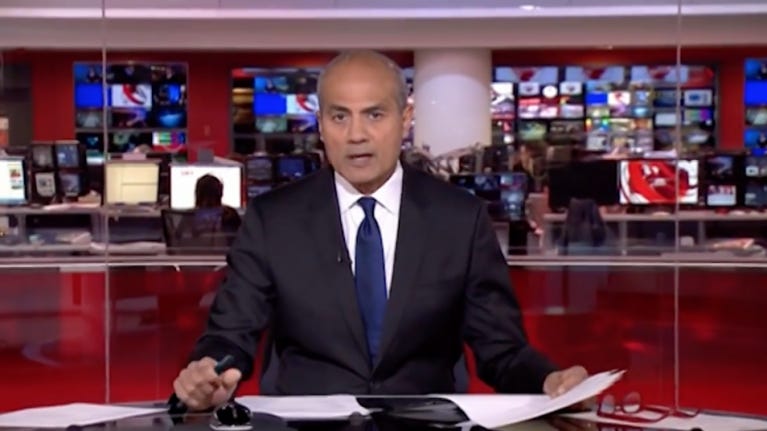Ever since I reached the point in my career where I was recognised on the street, there has been a marked difference in the way people have reacted. From the English there is always a nod of recognition and then a whispered ‘It’s that newsreader’ to a friend as they want past.
From Black and Asian people there is always a handshake followed by the words, ‘We’re proud of you’ or similar. They have a sense of ownership. What I have achieved, I have achieved for them. It’s been a salutory experience.
I have never asked to represent black or Asian people, but for some of them that is precisely what I do. I used to feel rather ambivalent about being described as the BBC’s first black foreign correspondent, or being voted the Media Personality of the Year by the judges at the Ethnic Minority Media Awards. Is it so good, I asked myself, to be the best black journalist? I wanted to be the best journalist full stop, period, case closed.— ‘A Home From Home’ (Abacus), 2006 by George Alagiah
In The Thick of It when inept minister Nicola Murray accidentally launches an ill-fated leadership run, things get really serious when they discover that George Alagiah has turned up outside. By 2009, the year that episode of The Thick Of It was broadcast, Alagiah was a byword for seriousness, a name that denoted a quality of presentation and a commitment to news that could not be doubted.
Five years later, in 2014, Alagiah was diagnosed with bowel cancer. Thankfully, despite a very difficult prognosis, he was able to keep working on and off and to spend another 9 years with his family and friends. He died yesterday at the cruelly young age of 67.
Alagiah was a brilliant foreign reporter who joined the BBC after starting his career as a print journalist. His reports from war zones and places of extreme humanity and suffering were deeply empathetic and, as his friend and colleague Allan Little said in his tribute, Alagiah was known to cross the line between observer and participant to help people in desperate need of assistance.
Little writes of his friend:
Empathy was his great strength. He radiated it. It was rooted in the deepest respect for the people whose lives and - often - misfortunes he was reporting on. He could talk to anyone - from heads of state to children in a refugee camp on the edge of a war zone. And everyone wanted to talk to him. You saw him winning their trust, responding to his effortless warmth. He wanted to do well by all of them - to be true and honest and fair.
Once we sheltered in a stairwell, after three mortar bombs landed close to the hotel we were staying in Central Africa. A colleague reported that heavy shelling had, as they put it, rocked the city centre. Later, George said to me quietly "Allan don't say that. Heavy shelling didn't rock anything tonight. Three bombs fell close to where we happened to be and gave us a fright. Keep it in proportion." And I thought, not for the first time, "My name is George Alagiah and I'm here to calm you down." George didn't want to be dramatic. He wanted to be true.I write often about when journalism goes wrong, when journalists are cruel, or venal, or egotistical, or some toxic mix of all of those and more. George Alagiah was none of those things. He represented what journalism can and should be; he was someone who wanted to amplify the voices of people who might go unheard and to tell the story as it was not in a way that would make him the protagonist. Even as he was dying, he wanted to thank the audience for being there with him. The lesson for those of us who try to tell stories is clear.
RIP George Maxwell Alagiah (22 November 1955 – 24 July 2023).
Thanks for reading.





This is a great tribute to him, thank you Mic.
Superb tribute